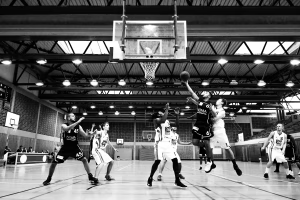
As a Buddhist I feel guilty about the mixed emotions I had as a (resentful) Knicks fan when Tyrese Haliburton went down in Game 7 after re-injuring his torn calf muscle and probably his Achilles tendon, sidelining the Pacers’ star for the rest of the game. I’m sure once that happened the odds in Vegas went heavily in favor of OKC.
As a Chinese medicine clinician, I couldn’t help but wonder, in the interim since the original injury how much his trainers had iced it to “bring down inflammation” even though Chinese Medicine and Dr. Gabe Mirkin, the originator of the R.I.C.E. protocol, recommend against it due to its vasoconstrictive mechanism.
Ice should be limited to stage 1 of an injury, only if there is some local redness, and even then Chinese medicine has something better to offer, San Huang San plaster, for its extensively studied anti-inflammatory, analgesic, and blood circulating effects.
The vessel that runs from the Achilles heel up to the calf and in fact the entire back is named the “Foot Tai Yang,” or urinary bladder, which logically acquires its nutrients and blood via its complementary vessel, the “Hand Tai Yin,” the lung vessel.
I recalled a story from last year that Haliburton has an odd but presumptively harmless condition where his voice changes inflection frequently and without apparent cause or warning. He laughed about it after several press conferences, saying he’d never realized he had this condition, but noticed exactly what others had while listening to himself speak.
Our voice of course is dependent on proper pulmonary function, which is why everyone immediately understands what someone means by “smoker’s voice.” Smoking dries the fluids, which might also explain why cigarette smokers are three times more prone to bladder cancer.
The ancient Chinese understood this connection. For all their brilliance at what they do, it is unlikely that modern sports medicine physicians do. Their lens is to isolate and treat, whereas ours’ is to understand every piece of the puzzle, no matter how seemingly disconnected.
In the article I read on Haliburton, a voice specialist medical doctor cited the fact that athletes do have to use their voice quite a lot on the court when communicating, but probably not nearly as much as performers or teachers or several other professions, right? I don’t think athletes are generally more prone to dysphonia. Also, basketball players may be more prone to issues with Achilles tendons, ankles, and knees, but it is notable that the remaining starting nine players in the Finals were playing the same game on the same floors at the same pace, and did not tear their calves. Only the guy with the history of dysphonia did—in my opinion due to the physiological connection between Foot Tai Yang and Hand Tai Yin. So the next time you have shoulder pain, knee pain, or any pain, by all means go to the doctor and get assessed—then go to a (good) Chinese medicine clinician to understand what’s happening beneath the surface.
Congrats OKC!

